
Given that our current ecological situation is to say the least not desirable, we often hear people claim that we need to ‘save Mother Nature’, or that we have managed to ‘destroy Nature’, or alternatively, that ‘we are part of Nature’. Hidden behind all such assertions lies the tacit assumption that there is either a fundamental fissure separating humans from Nature (hence the claim that we need to save ‘Mother Nature’ or what have you), or an essential relational bond between humans and nature (hence the claim that we are ‘part of’ or ‘intertwined’ with Nature). I am of the view that both these positions are deeply problematic. This is because both start off by implicitly assuming that there are two and only two different kinds of entities, namely humans and everything else, and that these two entities either need mediational bridging (as with the former position) or are always conjoined (as with the latter). For reasons I’ll explain in a moment, the eminent American philosopher Graham Harman calls such positions ‘onto-taxonomical’. I hold that coming to terms with the current environmental crisis requires us to abandon such forms of thinking, and reconsider not only our specific position in relation to ‘the world’, but also the very status of the world which we tend to treat either as an adversary, or victim, or as that which simply serves to mediate human relations. In what follows, I shall discuss these issues in relation to Harman’s forceful critique of ‘onto-taxonomy’ as well as some proposed solutions to this flawed form of reasoning.
This story is from the June/July 2023 edition of Philosophy Now.
Start your 7-day Magzter GOLD free trial to access thousands of curated premium stories, and 9,000+ magazines and newspapers.
Already a subscriber ? Sign In
This story is from the June/July 2023 edition of Philosophy Now.
Start your 7-day Magzter GOLD free trial to access thousands of curated premium stories, and 9,000+ magazines and newspapers.
Already a subscriber? Sign In
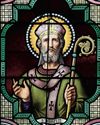
Anselm (1033-1109)
Martin Jenkins recalls the being of the creator of the ontological argument.

Is Brillo Box an Illustration?
Thomas E. Wartenberg uses Warhol's work to illustrate his theory of illustration.
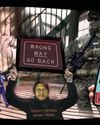
Why is Freedom So Important To Us?
John Shand explains why free will is basic to humanity.
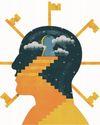
The Funnel of Righteousness
Peter Worley tells us how to be right, righter, rightest.
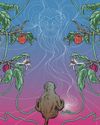
We're as Smart as the Universe Gets
James Miles argues, among other things, that E.T. will be like Kim Kardashian, and that the real threat of advanced AI has been misunderstood.
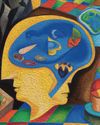
Managing the Mind
Roger Haines contemplates how we consciously manage our minds.
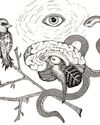
lain McGilchrist's Naturalized Metaphysics
Rogério Severo looks at the brain to see the world anew.

Love & Metaphysics
Peter Graarup Westergaard explains why love is never just physical, with the aid of Donald Davidson's anomalous monism.

Mary Leaves Her Room
Nigel Hems asks, does Mary see colours differently outside her room?
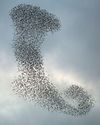
From Birds To Brains
Jonathan Moens considers whether emergence can explain minds from brains.